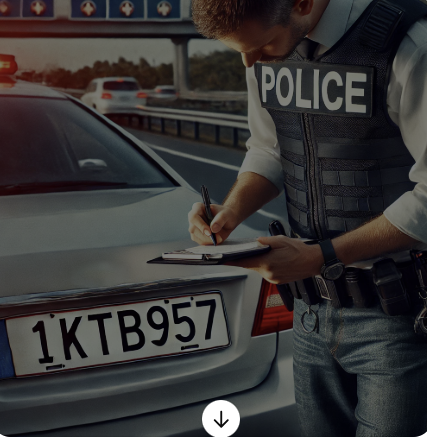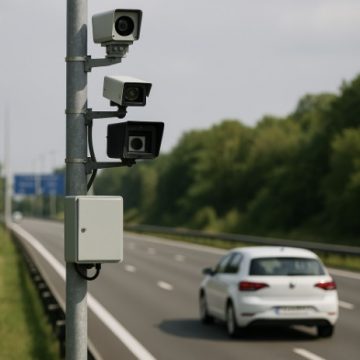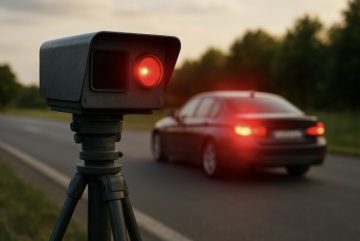License Plate Fraud: What Are the Risks for Motorists?
A recent case in Belgium has shed light on a well-known type of fraud: the use of fake license plates to evade traffic penalties. A motorist was caught red-handed after avoiding more than 60 speeding tickets by slightly altering their plates. What risks do fraudsters face, and how can victims defend themselves?
1. Using Fake License Plates: A Serious Offense
Falsifying a license plate or using a plate that does not correspond to the vehicle is a serious offense under Belgian law. Not only does it constitute fraud and forgery, but it also obstructs traffic controls and police investigations. The law provides for severe penalties, which can include a driving ban and even imprisonment.
In the recent case, the intercepted driver had used several similar plates to avoid fines. This scheme allowed him to escape detection by speed cameras multiple times, notably while driving at excessive speeds of up to 158 km/h. A police officer’s keen observation of a subtle difference between the plates led to the fraudster’s identification.
2. What Are the Potential Penalties?
A motorist found guilty of using fake license plates risks several penalties:
- A fine that can reach several thousand euros (in this case, approximately €5,000).
- Temporary or permanent revocation of the driver’s license.
- The obligation to undergo medical and psychological examinations before being allowed to drive again.
- A prison sentence in cases of repeat offenses or proven fraud, as ruled by the police court.
- Sanctions under the offense of forgery and use of forged documents, which falls under the correctional court rather than the police court. This offense is punishable by a prison sentence of five to ten years, under Article 196 of the Belgian Penal Code, and may also result in a substantial fine.
In this case, the fraudster’s license was suspended for 15 days, and he will face additional penalties in court.
3. What to Do if Your License Plate Is Stolen or Cloned?
This case also raises concerns for victims of such fraud. One of the legitimate owners of the cloned plates was wrongly fined and had to file a complaint for forgery and use of forged documents. If you are a victim, here are the steps to take:
- File a police report to report the theft or misuse of your plate.
- Provide evidence that your vehicle could not have been involved (witness statements, invoices proving your vehicle’s location elsewhere, etc.).
- Request the cancellation of unjustified fines from the relevant authorities.
- Deregister your plate and request a new one, if necessary, to prevent further fraud.
4. How to Prevent License Plate Cloning?
To reduce the risk of your license plate being cloned, take the following precautions:
- Regularly check the condition and attachment of your plates.
- If you receive a suspicious fine, contact the police immediately.
- Opt for a personalized or secure license plate, which is harder to duplicate.
Conclusion
This case of a fraudulent motorist highlights the dangers and consequences of using fake license plates. With severe legal sanctions and significant harm to innocent victims, this practice remains strictly punished under Belgian law. If you suspect that you have been wrongly accused of an offense, it is essential to act quickly to protect your rights.
Are you facing issues related to license plate fraud or a traffic law dispute?
Contact me for personalized legal assistance.




